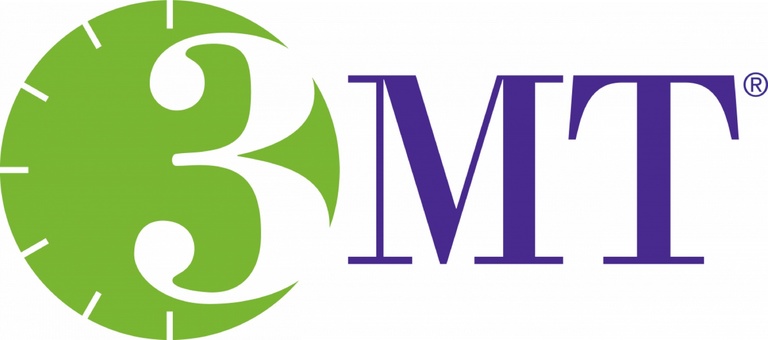
There was one humanities finalist in last year’s University of Iowa 3MT competition--Miriam Janechek. She was in the midst of writing her English literature dissertation about 19th-century Victorian children’s literature and religion, while simultaneously caring for a baby and a toddler and living in St. Paul, MN. It would have been easy for her to view the competition, in which participants have three minutes in which to share their research, as a time commitment that she simply couldn't afford. She saw it as the reverse—an opportunity she couldn’t pass up.
All of the preparation turned out to be invaluable. The experience made her into such a believer that she says, “It should be a requirement for all PhDs to do this!”
This year, the Obermann Center is offering the first 3MT specifically for humanities graduate students. The Sept. 27 event has 15 participant spaces. The winner receives $250 and goes straight to the UI finals in November, while other participants can choose to enter the campus-wide competition. We are also offering a workshop, “Finding Your Authentic Speaking Voice,” with UI Theatre faculty Kristy Hartsgrove-Mooers on Sept. 20 to help prepare.
We talked with Janechek to learn more about her 3MT experience.
Why did you choose to participate?
Somebody else in the English Department competed during the first year that the UI hosted a 3MT, and he did pretty well. Later, he said that it had really helped him prepare for the job market. I was interested in being able to distill my dissertation for a job interview, especially for jobs outside of the academy. I wanted to learn how not to get flustered when explaining my research to people who would have considerably less interest in it than those in my field.
How did you prepare?
I wrote it, and then I called my mom and read it to her. She gave me feedback on what she did and didn’t understand, when my sentences were too long, or what she found compelling. I rewrote it and read it to more people and got similar feedback from them. And did it again and again. I always presented it to people who didn’t know anything about my topic.
How did it change from when you began to what you eventually delivered?
I came to realize that the thesis paragraph of my actual dissertation is simply too big to say to an audience in three minutes and have them remain interested. I became very willing to let go of the absolute fact of what I was saying and talk in terms of the spirit of my dissertation.
What advice do you have about how to frame a 3MT?
Think of it less as the absolute truth of your research and more as the enticing copy on the back of a book cover. You’re trying to convey the spirit of your research through storytelling. Don’t forget to use your one slide as a way to captivate the audience.
How did you prepare for the performative aspect of the competition?
I’ve done a lot of public speaking, and yet I still got really nervous. I videotaped myself a few times to be sure I didn’t have any weird mannerisms, and to remind myself to look up. I was also conscientious of who I did and didn’t want in the audience; my mom calms me down, but my husband makes me nervous! I practiced in a big empty room similar to the one where the competition would be held and asked a friend to sit at the back to let me know if I was projecting enough. Finally, I held a rock in my pocket to have something to hold so that I didn’t fidget too much with my hands.
What did you gain from participating in the 3MT?
In addition to being able to talk about my dissertation swiftly, using accessible language, I also have had the chance to share my work with so many more people than I would have. I gave my presentation to neighbors and friends, relatives, someone on an airplane, a clerk at a bookstore. I really learned how to know when I’m crossing the line into boring people!
Most importantly, it helped me to think through my dissertation because I had to become so intimate with the material.
Who should participate in the 3MT?
Anyone who knows what their dissertation is going to be about is ready. After all, this is sort of like a business pitch; and when you pitch a business to an investor, you don’t have the actual business yet—it’s still an idea. And don’t tell yourself you are too busy; this is a really good use of your time! You will never reiterate your ideas so many times without this opportunity. In doing so, you’ll come to understand the core of your work.
View Miriam's 3MT finals' presentation: https://www.grad.uiowa.edu/profiles/miriam-janechek
